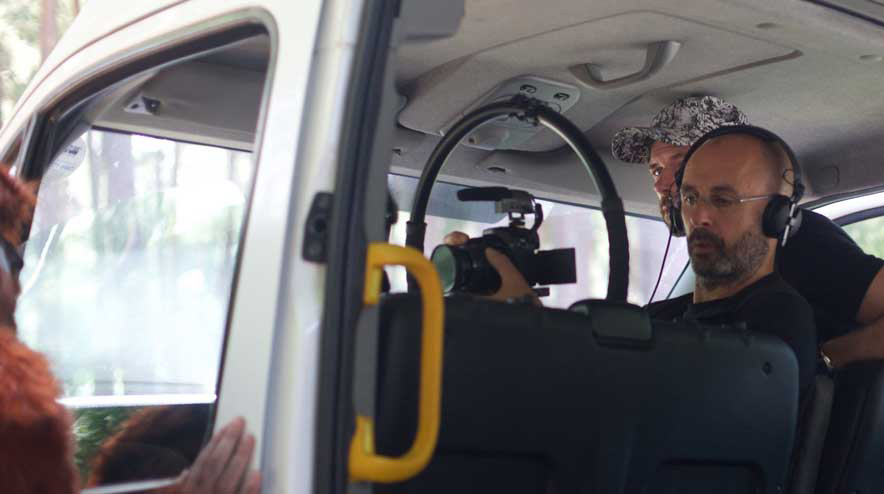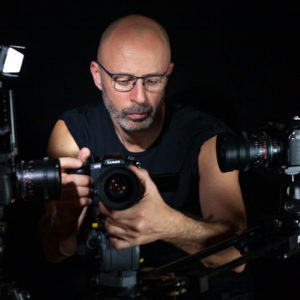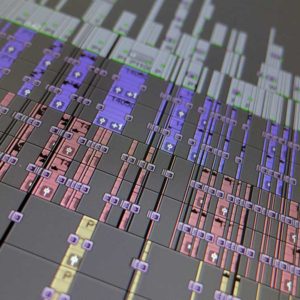With many years of video production experience, I’m occasionally asked to speak as a freelance guest speaker. In this post, I detail one recent speech.

Invitation to speak as a freelance guest speaker
My friend, film studies lecturer Marko Waschke, recently asked me if I would be interested in talking as a guest speaker to some of his students. I was and he subsequently invited me to speak with his 2nd year BA (Hons) Film Practice students as they were having a screening of their cinematography films in the amazing Keyworth Event Theatre at London South Bank University. Marko invited me to join the screening session so that I could share some of my freelance video production experiences that would hopefully also offer them some helpful insight into possible career options.
Before the event, I had been thinking about what aspects of my knowledge of the film and media industry that I could pass on that would be of most benefit to people starting out in the industry. I thought about how I got started in the industry and knew that this is what I wanted to convey to the students.
Media is my second career
Media and film was the second career for me. After a period with the Royal Air Force as an Aeronautical Engineer, I knew I wanted to move into media. After doing some voluntary work in community radio, I applied for and was successful in gaining a trainee position for BBC Post-Production (I was one of eight successful trainees from over five thousand The Guardian advertised applicants).
Whilst working at that time in post-production, new Avid non-linear computer-based editing systems were being introduced and used for BBC video editing. I started in an assisting role, supporting these Avid suites and the Avid editors and then quickly became proficient enough to be editing short presentation trailers by myself. Once I had demonstrated an interest and aptitude for this new technology, I was able to provide cover for Avid editors and then was asked to edit a trailer. Over time, I gained more opportunities to edit presentation trailers and eventually I was requested to edit trailers by producers with whom I had developed a good working relationship.
By working hard and dedicating myself to the edit-assisting role I subsequently secured a six-month attachment for CBBC Blue Peter, editing insert rolls on Avid Media Composer. At that time, the Avid timeline would be played out to Digi-Beta tape for playback into their three-times a week live studio-based programmes. After displaying an aptitude for video editing, and all the skills that encompasses, I gained an opportunity (through good relationships with production teams) to edit my first short film. An Avid editor would be allocated around 3 days to edit and sound mix a 5 to 7-minute broadcast standard film and would usually work alongside a producer or an assistant producer to ensure as efficient an edit as possible.
Developing your skills
After five years of working in post-production at the BBC, I was fortunate to be promoted to the position of Video Editor. I then went on to edit a wider range of programme content including entire 25-minute programmes (being allocated 10 days to edit them). Looking back, I realise that my success was based on the hard work (putting in extra hours to enhance my knowledge), dedication and the good working relationships that I developed with my colleagues.
It also helped that I quickly became competent on the new Avid Media Composer software editing kit. Many of the ‘old school’ video editors did not wish to learn this new technology so these new skills became an opportunity for me to progress quickly.
Freelance marketing
After explaining to the students how I began my film-editing career. I described my experiences of working as a freelance filmmaker, videographer and video editor and explained how I was able to develop new production and filming skills by being given a variety of opportunities by people who believed in my ability to produce quality work.
To conclude the talk to the students, I explained how I now promote and market my video production and editing skills and services. I then touched on the subject of search engine optimisation (SEO) as a way of encouraging the students to think about how they were going to find work and/or market themselves after their course had finished.
To finish the session I showed the students my website and played a couple of clips of films that I had made.
Although my own journey is unique to me my experience of making the most of a lucky break, working hard to learn new skills and developing expert knowledge on a new piece of kit will be as helpful and relevant for students or people starting out in the industry as it was for me. I really enjoyed talking as a guest speaker to the LSBU students and hope to share my experiences again with other students. The LSBU film students now have access to a cutting-edge studio and post-production facilities that can also be hired.



